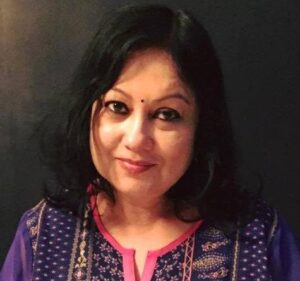Pema Khandu, the dynamic and forward-thinking Chief Minister of Arunachal Pradesh, represents a new generation of Indian political leadership. Born in one of India’s most remote and culturally rich regions, Khandu’s life journey reflects a deep-rooted commitment to public service, development, and regional identity. From inheriting a political legacy to establishing his unique vision for progress, his story is a blend of heritage and modern governance.
Early Life and Family Legacy
Pema Khandu was born on August 21, 1979, in Tawang, a picturesque town in the western part of Arunachal Pradesh, known for its ancient Buddhist monasteries and strategic importance along the Indo-China border. He hails from a prominent political family belonging to the Monpa Buddhist community, which plays a significant role in the socio-cultural fabric of the state.
His father, the late Dorjee Khandu, was a revered figure in Arunachal Pradesh politics. A former Chief Minister himself, Dorjee Khandu was known for his developmental vision and rapport with the people. Growing up under the guidance of such a leader gave Pema early exposure to governance, grassroots issues, and the intricate dynamics of politics in a tribal state.
Pema Khandu pursued his schooling from Tawang and later earned a Bachelor of Arts degree from Hindu College, Delhi University. His education outside Arunachal gave him a broader perspective, while his upbringing ensured a strong cultural grounding. This balance would later define his political style — progressive yet rooted.
The Sudden Transition: A Leader is Born
Pema Khandu’s entry into active politics was both unexpected and emotionally charged. In 2011, tragedy struck when his father, then Chief Minister Dorjee Khandu, died in a helicopter crash. The untimely loss created a political vacuum, and the mantle of leadership eventually passed to Pema, who was still relatively young and new to public life.
His political debut came in June 2011, when he was elected unopposed as an MLA from Mukto constituency, the seat previously held by his father. Despite initial skepticism, Khandu quickly established his presence in state politics with a calm demeanor, administrative clarity, and the ability to connect with various tribal groups across Arunachal Pradesh.
Political Rise and Realignment
In the years following his election, Pema Khandu served in key ministerial roles, including Tourism and Water Resources. These portfolios gave him critical experience in sectors that are central to Arunachal Pradesh’s growth potential.
The year 2016 was a defining moment in his career. In a time of political instability within the Indian National Congress in Arunachal Pradesh, Khandu was elected as the Chief Minister on July 17, 2016, at just 36 years old, making him one of the youngest Chief Ministers in India.
However, his tenure began amidst political turbulence. In a dramatic shift, he along with 43 MLAs from the Congress joined the People’s Party of Arunachal (PPA) in September 2016. Shortly after, in December 2016, he made another significant move by merging with the Bharatiya Janata Party (BJP), aligning Arunachal’s government with the Centre. This realignment stabilized the state’s political landscape and ushered in a new era of development-focused governance.
Governance with Vision: Key Initiatives and Reforms
As Chief Minister, Pema Khandu has consistently emphasized infrastructure development, digital governance, and indigenous empowerment. His administration has worked toward integrating Arunachal more closely with national development goals while respecting its unique tribal identities.
1. Connectivity and Infrastructure
Given Arunachal’s challenging terrain, improving connectivity has been a top priority. Under Khandu’s leadership, projects such as Trans-Arunachal Highway, border roads by BRO (Border Roads Organisation), and the Hollongi Greenfield Airport near Itanagar have gained momentum. These initiatives are expected to revolutionize mobility, boost tourism, and enhance border security.
2. Digital Governance
Khandu has also been a strong advocate for e-governance. His administration launched digital platforms like e-Pragati and e-Office, streamlining administration and improving transparency. This aligns with the broader Digital India vision, aiming to make governance citizen-friendly and tech-enabled.
3. Hydropower and Renewable Energy
Arunachal Pradesh, rich in hydrological resources, has vast untapped potential for hydropower. Khandu’s government has focused on developing this sector responsibly, balancing environmental concerns with economic opportunities. Agreements for large-scale hydro projects are seen as key steps towards making Arunachal an energy-surplus state.
4. Promotion of Local Culture and Language
Despite rapid modernization, Pema Khandu has remained deeply invested in preserving Arunachal’s cultural diversity. His government has encouraged the teaching of tribal languages, celebration of local festivals, and documentation of oral traditions. This cultural policy is seen as a model for other tribal states.
A Calm Voice in a Strategic Border State
Arunachal Pradesh shares international borders with China, Bhutan, and Myanmar, making it a geopolitically sensitive state. Pema Khandu has played a key role in fostering national integration, encouraging a strong Indian presence in border villages, and backing the Indian Army’s initiatives in the region.
He has actively supported the Centre’s Vibrant Villages Programme, which aims to develop infrastructure in border areas to discourage migration and strengthen local economies. His stance has always been one of strategic diplomacy combined with grassroots development.
Leadership Style: Youthful, Grounded, and Future-Focused
Pema Khandu’s leadership stands out for its inclusive approach and quiet confidence. Unlike many politicians, he is known for maintaining a low profile, allowing his work to speak for itself. He frequently tours districts across the state to interact directly with citizens, breaking the barriers between the government and the governed.
His focus on education, youth engagement, entrepreneurship, and women’s empowerment signals a shift towards future-ready governance. Initiatives like the Chief Minister’s Samast Shiksha Yojana aim to overhaul education infrastructure, while youth-led startups are being supported through incubation and funding programs.
Recognition and Continued Popularity
Under his leadership, Arunachal Pradesh has been recognized for its improving ease of doing business, transparent governance, and enhanced peace index. In the 2019 Assembly elections, Pema Khandu led the BJP to a sweeping victory, securing 41 out of 60 seats — a clear endorsement of his work by the people.
His popularity continues to grow, especially among young voters and rural communities, who see him as a symbol of stability, development, and modern leadership.
Conclusion: The Promise of Progress
Pema Khandu’s journey from the serene hills of Tawang to the Chief Minister’s Office is not just a political narrative—it is a story of dedication, heritage, and transformation. As Arunachal Pradesh strides forward under his stewardship, it reflects a larger story of the Northeast’s integration into India’s growth story.
With his balanced leadership style, developmental focus, and commitment to inclusive governance, Pema Khandu stands as one of India’s most promising regional leaders, guiding Arunachal Pradesh towards a brighter and self-reliant future.






